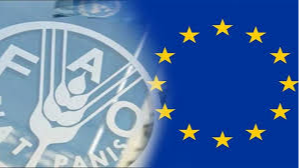 Havana, Cuba.- The Food and Agriculture Organization of the United Nations and the European Union will help Cuba in seed production with financial support of 2.5 million euros, as reported by the United Nations entity.
Havana, Cuba.- The Food and Agriculture Organization of the United Nations and the European Union will help Cuba in seed production with financial support of 2.5 million euros, as reported by the United Nations entity.
Implemented by the Ministry of Agriculture, the initiative should strengthen institutions and units linked to the production and certification of seeds for different crops.
Under the title Pilot, horizontal models of knowledge management and technology transfer in Agroecology, the project has been working since 2022 to increase food production with direct benefits for 7,200 people and 14 institutions.
According to the source, the support from FAO and EU includes the acquisition of tractors, automatic seeders, screens, seed counters and classifiers, moisture meters for grains, digital scales and containers for seed conservation, among other means.
The recipients of the aid are the Alejandro de Humboldt Fundamental Research Institute (Inifat), the National Institute of Agricultural Sciences (INCA), the Pedro González credit and service cooperative, and the Grain Station of Isla de la Juventud.
The fundamental purpose is to promote collaboration with INIFAT and INCA in relation to original and basic seeds of grains and vegetables, while the Isla de la Juventud Grain Station will focus its actions on the contribution of registered seeds and certified.
According to the FAO, it is about promoting the application of scientific results in productive practice at the local level, as well as links between academic institutions and food producing entities.
This includes the exchange of successful experiences of different organizations and research institutions in the country, to promote links between innovation, production chains, resilience to climate change and good practices at the local level.
Meanwhile, the financing of 2.5 million euros comes from the EU global initiative Development Smart Innovation through Research in Agriculture.